National health awareness months are one way the public gains greater awareness of health concerns and conditions. Are you joining the conversation?
What Is a National Health Observance?
National Health Observances (NHOs) are marked months, weeks, and days on the calendar that are dedicated to raising awareness about specific health conditions and topics. Sometimes called awareness months, these efforts are an effective way to boost awareness of a specific condition or disease, focus service-line marketing efforts in the calendar year, and reach a large number of people. Two widely recognized examples: October’s Breast Cancer Awareness Month, and February Heart Health Month.
 By creating relevant marketing campaigns around NHOs, healthcare marketers can catch their patient population’s attention at a time when there’s heightened interest in a particular condition. For example, nearly everyone is familiar with the omnipresent pink ribbons that appear during October’s Breast Cancer Awareness month. So how can you turn this national attention into more eyes on your regional services?
By creating relevant marketing campaigns around NHOs, healthcare marketers can catch their patient population’s attention at a time when there’s heightened interest in a particular condition. For example, nearly everyone is familiar with the omnipresent pink ribbons that appear during October’s Breast Cancer Awareness month. So how can you turn this national attention into more eyes on your regional services?
Since there is already a heightened awareness of the condition, you can target your digital marketing efforts on delivering quality, informative resources that differentiate your facility and grow awareness of your brand. And once you have their attention, your messaging—when delivered in a relevant, engaging way—is more likely to resonate. Using the example of Breast Cancer Awareness Month, you may launch an awareness campaign around recognizing the contributing factors for developing breast cancer, including . At the end of the assessment, they are presented with more educational resources and the ability to book their routine screening and mammogram.
Another benefit of using these awareness months is that the awareness generated during the NHO period doesn’t end with the month, week, or day it takes place. Each year, the October Breast Cancer Awareness campaign encourages women to pay closer attention to their bodies in the long-term, resulting in early action for at-risk populations throughout the entire year, not just during October .
Five Steps to Creating A National Health Observance Campaign
How can your organization take advantage of NHOs and create a campaign that will make a lasting impression on prospective patients ? We’ve identified 5 steps to creating a successful digital marketing campaign:
1. Familiarize yourself with health observance events and choose the right ones for your campaign
As you plan your approach, familiarize yourself with the calendar of awareness months. Avoid getting overwhelmed by focusing your attention on the NHO months that are most pertinent to your goals, your patient population, and the stories you have to tell.
2. Target your patient population—consider their needs, preferences, and concerns
Awareness and education campaigns are most effective when they feel relevant and personalized to the prospective patient. Be sure to personalize your outreach, consider your population’s Social Determinants of Health (SDoH), and tap into community resources.
3. Set measurable goals relevant to awareness and education campaigns
Your goal is to raise awareness and position your health clinic/hospital/health system as the expert for treatment. Some metrics to consider include: patient acquisition cost, marketing originated patient, marketing influenced patients, and patient engagement.
4. Identify your key messages and build quality content
When developing your message, ask what value your organization can uniquely provide and try to personalize it. Does your facility have the latest equipment? Does your staff boast experts in their field or people who have personal stories to share with the community?
5. Choose your channels and plan tactics and use the results to make more data-driven programs
Center your campaigns on patient experience. This means ensuring your web design is mobile-friendly, make any and all calls to action clear, ensure your social media presence is active and appropriate for patients. Offer experiences beyond scheduling an appointment. You can’t expect prospective patients to hit a web page ready to book an appointment or screening — offer engaging tools to further educate them, such as a condition-specific health assessment that helps them better understand their risk.
Now that you know what you need to do, are you ready to find out how to do it?
Download our guide Using National Health Observance Months to Boost Patient Acquisition to find the best strategies and methodologies to creating effective campaigns.







